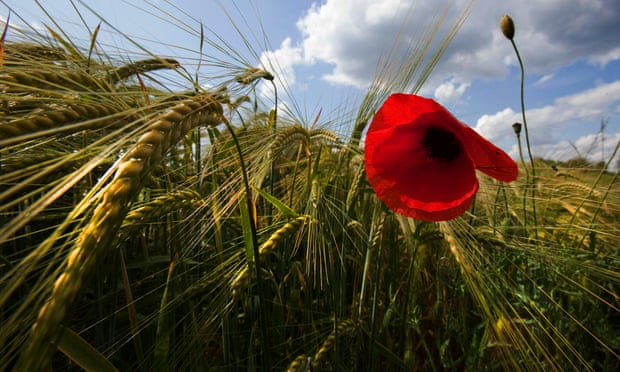Sonnet – September 1922 isn't quite, at first glance, the kind of poem we associate with Ivor Gurney. He was a consummate poet of place and particularity, celebrating in The Dearness of Common Things a litany of domestic and pastoral favourites, from "Beech wood, tea, plate shelves / And the whole family of crockery" to "Earth fine to handle, / The touch of clouds" and "Wool, rope, cloth, old pipes / Gone warped in service / And the one herb of tobacco". A song of self-knowledge, that candid statement of his ars poetica underlies a previous poem of the week by Gurney, The Mangel-Bury. This week's choice doesn't turn its back on the resources of place and detail, but layers them with more abstract ideas.
Even before a traumatic experience of the first world war, Gurney showed symptoms of the illness that would lead to his hospitalisation, and which would now very likely be categorised as bipolar disorder. The dating of the poem strongly suggests that he wrote it around the time he was certified insane. It was written on 28 September, in the same year that Gurney was transferred from a mental asylum in his native Gloucester to the City of London mental hospital in Dartford, Kent, where he was to spend the last 15 years of his life.
His real life as a poet was to continue, and the decision to write in the sonnet form at this intensely emotional moment signals, perhaps, a quiet mustering of resources. Authenticity, realised through innovative formalism, is the first of these.
The sestet complicates the thought, and concerns self-perception. As the earth "Forgets protestation in its turning", the toad, threatened by the harrow, forgets or is forgotten by "toadiness"– the state of being a toad, but, implicitly for the person in that crushed condition, the dishonourable state of playing the toady. The sense of self is undermined more radically in the butterfly's reaction "when that clanking thing goes by" (the harrow, the ambulance?) but then rectified ("And's not distressed"). The last two-and-a-half lines shift magnificently to the metaphorical and colloquial, introducing, with a characteristic wry, down-to-earth humour, the grocer's easily falsified bill. While being "twisted" physically connotes painful distortion and death, acquiescence might include possibilities of self-preservation and even escape (twisting free). The concluding aphorism mingles gravity and insouciance. Protest fails: time is handed the natural victory, which might also bring a welcome cessation of mockery or betrayal, "And no history of November keeps the guy."
